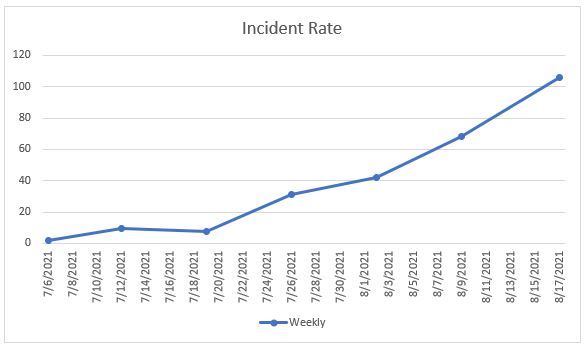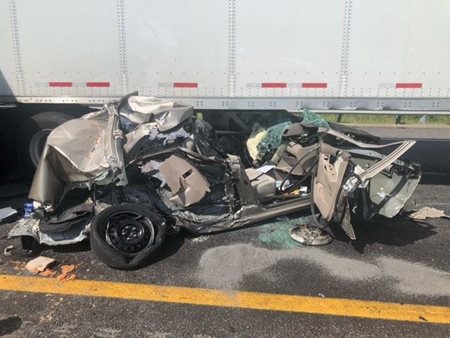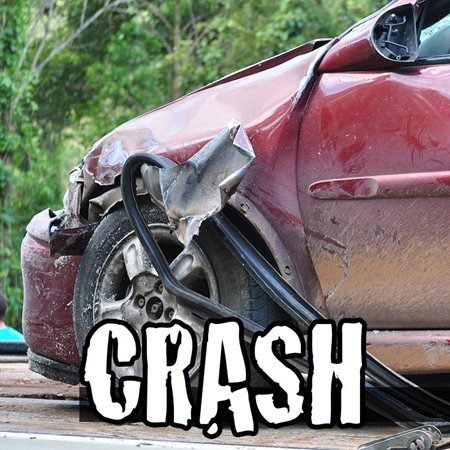Scott Merritt was asked by Keith Fawcett of the Coast Guard if he felt from a corporate perspective if officers could safely navigate on the inland waterway with their existing license. Merritt said yes because all officers carry United States Coast Guard endorse licensing and the vessel is qualified to be used on the river systems and on the ocean.
Merritt also told Fawcett that the license also allows officers to operate the ship on the inland waterways under certain provisions and take on federal pilots at locations around different ports.
As for a written procedure on navigating under bridges, Merritt says he is not aware of a specific policy to transit the river, but there is a passage plan that has been designed for the ship to travel the entire river system toward its intended port.
When asked if Merritt knew if the ship had ever traveled under other spans of the Eggner’s Ferry Bridge other than the main channel, he said he had no personal knowledge of this, but said officers should know the bridge height and clearance so they can safely navigate the ship. Merritt says he expects officers to comply with the rules of the road and post a proper lookout along with operating the ship and take any additional measures to keep the ship safe when traveling.
He also told Fawcett that the company hires pilot advisors like Captain William Collins, who was on the Delta Mariner the night of the crash, to share their knowledge and experience on the waterways and enhance safety through the water system. Merritt also noted that he expects pilot advisors to have Coast Guard credentials before being hired and if they have expired, he would want to know the circumstances before hiring.
As for the conversation on the bridge before the crash, Merritt says they have the right to talk about whatever they want to, but the captain has the right to shut down any conversation so he can have the full attention of the crew in a situation like the one that happened the night of Jan. 26.
Merritt says there have been no company policy changes since the incident happened. He says the company fully intends to take information from the hearing and from their own investigation to keep a situation like what happened at the Eggner’s Ferry Bridge from happening again.
After a short break, Kevin Moore, an attorney for the Kentucky Transportation Cabinet, asked Merritt when he first heard about the crash. Merritt said he heard about it from the ship’s operation manager between 8:15 and 8:20 pm local time. Merritt added that a crisis management policy was activated and commends the crew for their actions protecting people first, securing the ship and preventing an environmental incident from happening.
Moore asked Merritt about who should have been at the helm of the ship. Merritt said the company would want the deck officer to be at the helm in confined waters and other responsibilities should have been turned over to the deck watch officer.
Merritt says he is familiar with how the ship handles and noted that the ship is equipped with the tools necessary for safe travel. He says he doesn’t know what could have been done to avoid the crash, but that the crew tried to make the best decision for the ship at that time. He says the crew did not hear the broadcast to mariners about lights being out on the bridge. He calls that “regrettable,” but it does happen. He says it would be prudent for the crew to hear messages in order to keep them and the ship safe from harm.
Bobby Miller, who represents Foss Atlantic in this case, discussed how the boat is inspected with Merritt. Merritt says it is inspected by the Coast Guard and other agencies including the American Bureau of Shipping. And since the ship is so big, the crew holds multiple licenses in order to operate it.
Merritt added that once the ship was towed to Paducah for repairs, members of the American Bureau of Shipping arrived to make sure it was ready for travel. Final repairs were made last month in Mobile, AL.
Merritt also told Miller that their professional pilots make the best decisions with the information they are given for the safety of their ships.
Bobby Pepper, general manager of the Delta Mariner, then was questioned by Barry Strauch, with the NTSB, who asked Pepper what the process was in bringing pilot advisors onto the Delta Mariner.
Pepper says they needed pilot advisors to help their pilots navigate the river system because of their lack of knowledge.
He says the pilot advisors did most of their work along the Mississippi River, but everyone has had time on the Tennessee River. These advisors are all heavy tow captains and are qualified for service. He says they all went through an orientation session and an overview of the ship using the safety management system and the passage plan so they would know what's going on.
Pepper told Strauch that the pilots were not given any formal training because they are in an advisory role. The advisors also are used for radio conversations between ships because Foss crews don’t know the lingo used on the river.
Pepper also says watch persons and equipment inside the ship is used when there is limited visibility at night in order to keep the ship safe. He says the pilot relies on his vision when lights are being used, and the helmsman should request information from the mate onboard when steering the ship. Also there are only verbal exchanges between pilots as to conditions when they change shifts.
Pepper noted that there could have been radio trouble when the notice to mariners was issued about the bridge. He says so much information is given at one time that it would take good concentration to hear everything.
Pepper said after the incident, third mate Captain Frank Altany and second mate Shawn Quinn both resigned. He said both men were good workers, but decided to leave on their own.
Also during questioning about the company’s hiring practices from Coast Guard Lt. Nicholas Parham, he says it is very seldom to find people within Foss that would have the correct licenses to put on their boats, but the company likes to promote from within. He says when people are hired, they look at their licenses, passport, their resume to see what jobs they have held, then hire the best person for the position.
Pepper also said there should have also been discussion about what equipment on the ship was showing prior to the crash with the bridge.
Kevin Moore, the attorney representing the Kentucky Transportation Cabinet, also asked Pepper if he thought there was confusion on the ship’s deck right up to the minute the crew realized they were in group. Pepper agreed with that statement.
Moore also asked Pepper if he considered lights on the bridge to be navigation lights. Pepper says they are and you use them to line up where you should be. He added that Collins wrongly advised that the ship go under the bridge at the lowest span because he was misled by malfunctioning lights. Pepper said Collins chose a span that had the only working lights.
Moore also mentioned to Pepper that there have been times where crew member have stopped the ship to measure vertical heights of bridges. Pepper says that was correct and has just heard about this being done. He didn’t know what bridges had been done and if it had been done on the Eggner’s Ferry Bridge. He says the purpose of doing this is to make sure the readings the company has are correct in order to go under the right span.
He also noted that no disciplinary action had been taken against anyone during other incidents with the ship. He did say the ship was grounded once, but nothing else had happened.
Pepper says there is no policy about speed toward bridges because each bridge is different and situation is different. He feels since this incident took place that there will be some changes about speed, but has no idea as to what they will be.
Pepper said he felt that Altany should have caught any navigational errors as the ship traveled the river. He also believes that if the bridge has been lit, that the accident would not have happened.
The last witness of the day was Shawn Quinn, the former second mate on the Delta Mariner. He was in charge of creating the passage plan for the ship during his brief time with Foss Maritime.
Quinn only worked on the boat for about 70 days - from Sept. 30, 2011 until late February when he resigned. It was his decision to resign and it was not due to any disciplinary action.
Quinn says he looked over the safety managment system and the operations manual for the ship, but didn't have a clear understanding of it because he was only on the ship for a short time.
He noted that he had made one and a half trips prior to the Jan. 26 crash on the ship. Quinn added that he had no knowledge of the Eggner's Ferry Bridge or knew if it had ever been under any other span of the bridge.
He says while on the Delta Mariner, he did attend safety meetings, but didn't know how many. He explained that the crew was very active in the safety meetings and drills that were conducted.
Quinn also said you didn't need a detailed passage plan for the river because of the river pilots, but you do need one for the ocean.
Captain Frank Altany, third mate, along with Captain Lloyd Patten, Master of the Delta Mariner, are both set to testify at the hearing Thursday at Paducah City Hall.





